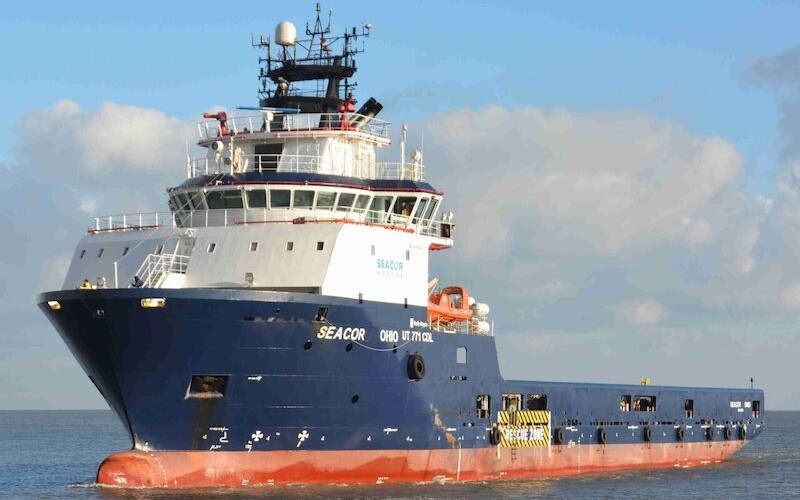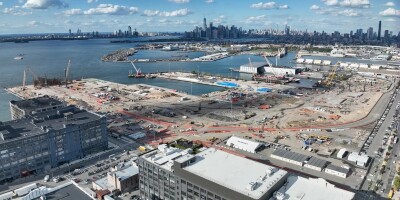Seacor Marine Holdings Inc. announced last week that it would upgrade four platform-supply vessels (PSVs) with energy storage systems from Kongsberg Maritime AS. The hybrid power solution will be installed on four of Seacor’s PSVs to enhance the way the company manages energy consumption and emissions onboard these vessels, Seacor said.
The four vessels included in the contract are the 3,852-DWT Seacor Ohio; 3,761-DWT Seacor Alps; 3796-DWT Seacor Andes; and 3,767-DWT Seacor Atlas. Installation is expected to begin in December 2024 and be completed by the second quarter of 2025. Once installed, more than 50% of Seacor’s PSV fleet will be hybrid-powered.
The four PSVs, all of which will feature the Kongsberg UT771 CDL design, will be equipped for battery hybrid operation with the installation of a containerized deckhouse energy storage system and associated switchboards and thruster control systems. The upgrade will also include a new Kongsberg K-Pos dynamic positioning (DP) system installed to replace the current DP system on all four vessels.
Beginning in February 2024 in Ulsteinvik, Norway, Kongsberg will also upgrade the UT771 CDL Seacor Yangtze with the deckhouse energy storage system.
"Seacor Marine was one of the first offshore operators to install battery hybrid systems, and this announcement marks a significant step in our ongoing efforts to enhance operational efficiency and reduce the environmental impact of our fleet," John Gellert, CEO of Houston-based Seacor Marine, said in a statement. “These energy storage systems are an investment in the sustainable future of our fleet and our ability to meet the offshore transportation requirements of our clients worldwide. We are excited to offer our clients additional hybrid PSVs that operate efficiently through reduced fuel consumption and related operating costs, while also reducing greenhouse gas emissions.”
“We see that by installing battery power, fuel consumption in DP operation mode on these vessels can be reduced by as much as 20%," said James Poulton, Kongsberg's senior vice president, aftermarket sales. "In addition to batteries, the conversion will also feature a shore connection, enabling connection to power grids when in port, which greatly reduces the amount of engine running hours and emissions from diesel fuels. The key benefit of having battery power instantly available is to maintain the redundancy of the vessels’ power system, with less engines running. This is particularly useful when operating in DP mode, but also has its value in other operational modes.”





